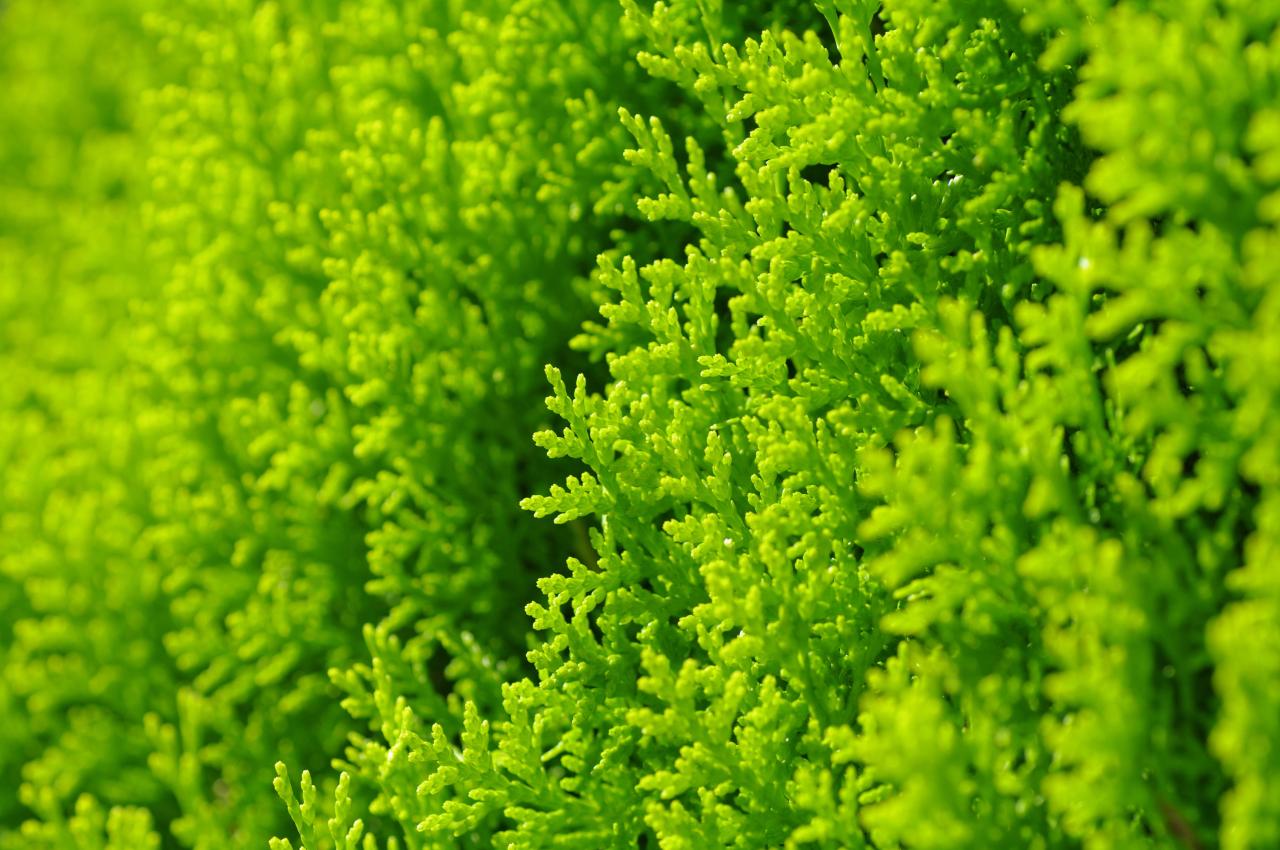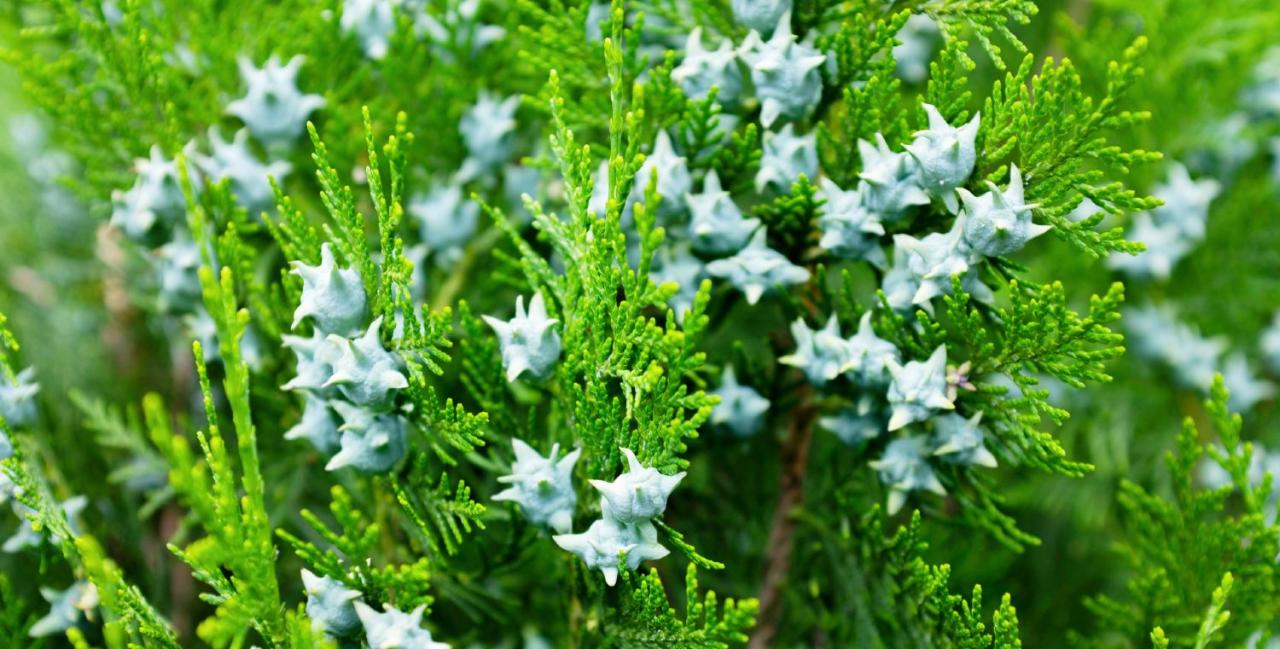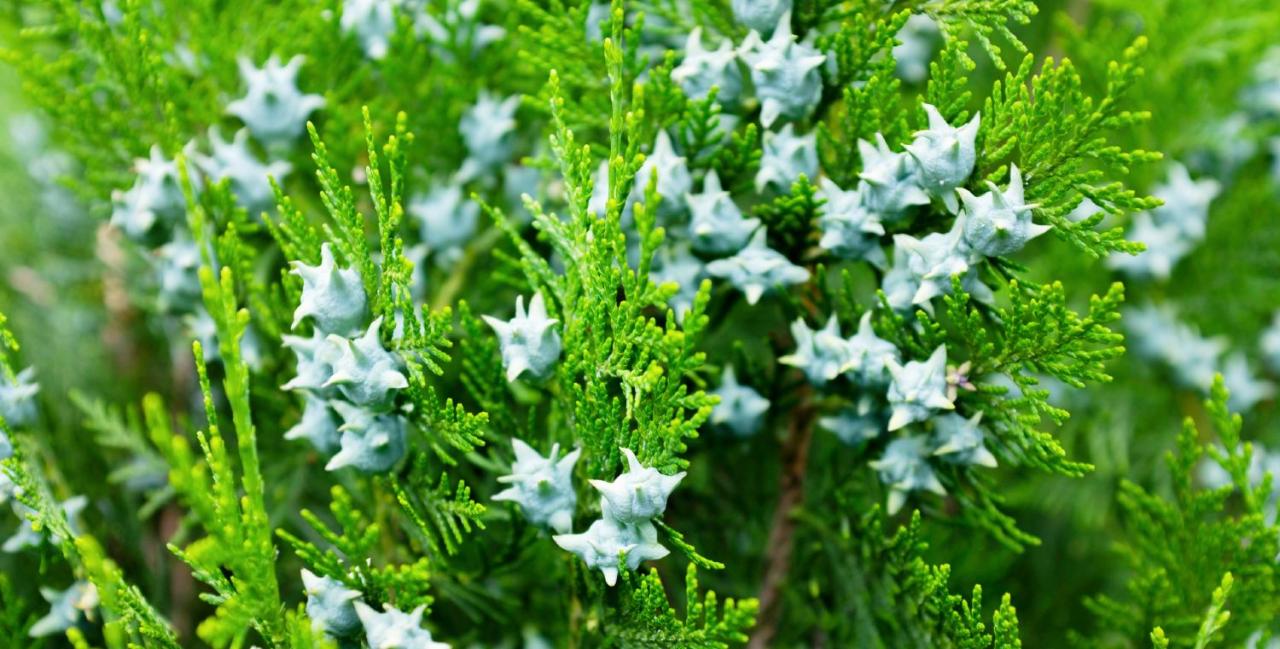Biota Herb: A Timeless Herbal Solution for Today’s Problems sets the stage for this enthralling narrative, offering readers a glimpse into a story that is rich in detail and brimming with originality from the outset. For centuries, Biota Herb, scientifically known as _Platycladus orientalis_, has been revered in various cultures for its purported medicinal properties.
This ancient herb, native to East Asia, has been used in traditional medicine to address a wide range of ailments, from respiratory issues to skin conditions. Its journey from traditional remedies to modern scientific exploration is a testament to its enduring appeal and potential health benefits.
This article delves into the rich history, traditional uses, and modern scientific understanding of Biota Herb. We’ll explore its botanical characteristics, active compounds, and potential therapeutic applications. From traditional practices to contemporary research, we’ll uncover the compelling story of Biota Herb and its enduring relevance in today’s world.
Introduction to Biota Herb

Biota herb, also known as thuja, has a long history of use in traditional medicine and cultural practices worldwide. Its origins can be traced back to ancient civilizations, where it was revered for its diverse medicinal properties. From the ancient Chinese medicine system to Native American herbalism, Biota herb has played a significant role in maintaining health and well-being.
Botanical Characteristics of Biota Herb
Biota herb, scientifically classified asThuja occidentalis*, is an evergreen coniferous tree native to North America. It is characterized by its pyramidal shape, reaching heights of up to 60 feet. Its leaves are small, scale-like, and arranged in opposite pairs, giving the branches a distinctive feathery appearance.
The tree produces small, cone-shaped fruits that mature in the fall.
Active Compounds and Therapeutic Benefits
Biota herb contains a variety of active compounds, including volatile oils, flavonoids, and tannins, which contribute to its medicinal properties. These compounds have been shown to possess a range of therapeutic benefits, including:
Anti-inflammatory Properties
Biota herb has been traditionally used to reduce inflammation and alleviate pain. Its anti-inflammatory properties are attributed to the presence of compounds like thujone and pinene, which have been shown to inhibit the production of inflammatory mediators.
Antioxidant Activity
Biota herb is a rich source of antioxidants, which help protect the body from damage caused by free radicals. Antioxidants, such as flavonoids and tannins, neutralize free radicals, reducing oxidative stress and promoting overall health.
Antimicrobial Effects
Biota herb has been found to possess antimicrobial properties, making it effective against various bacteria, fungi, and viruses. Its antimicrobial activity is attributed to the presence of volatile oils, such as thujone and sabinene, which disrupt the growth and survival of microorganisms.
Respiratory Support
Biota herb has been traditionally used to relieve respiratory ailments, such as coughs, colds, and bronchitis. Its volatile oils, when inhaled, can help clear the airways and reduce congestion.
Other Potential Benefits
Biota herb has also been associated with other potential benefits, including:
- Improving digestion
- Boosting the immune system
- Reducing stress and anxiety
- Supporting skin health
Traditional Uses of Biota Herb
Biota herb, scientifically known as _Platycladus orientalis_, has a long history of traditional medicinal use across various cultures. Its versatility has led to its application in treating a wide range of ailments, from respiratory issues to skin conditions. The plant’s therapeutic properties have been recognized for centuries, with its use documented in ancient texts and passed down through generations.
Traditional Uses in Chinese Medicine
Chinese medicine has long recognized the therapeutic benefits of Biota herb. It is considered a valuable remedy for respiratory problems, particularly coughs, asthma, and bronchitis. The herb’s ability to clear phlegm and relieve chest congestion has been highly valued in traditional Chinese medicine.
Biota herb is also used to treat urinary tract infections, skin diseases, and even hair loss. Its application in traditional Chinese medicine is often combined with other herbs to enhance its efficacy and address specific conditions.
Traditional Uses in Korean Medicine
In Korean medicine, Biota herb is known as _Hwangbyeol_ and has been used for centuries to treat various ailments. It is particularly known for its ability to stop bleeding, both internally and externally. This property makes it useful in treating conditions like nosebleeds, hemorrhoids, and even heavy menstrual bleeding.
Korean medicine also utilizes Biota herb to treat respiratory problems, skin conditions, and digestive issues. Its use in traditional Korean medicine is often combined with other herbs to create complex formulations that address specific health concerns.
Traditional Uses in Other Cultures
Biota herb has also been used in traditional medicine in other cultures, such as Japan and Vietnam. In Japan, it is known as _Hiba_ and is used to treat a variety of ailments, including coughs, asthma, and skin conditions.
In Vietnam, Biota herb is used to treat respiratory problems, digestive issues, and even some types of cancer. The plant’s versatility and effectiveness have led to its widespread use in traditional medicine across various cultures.
Comparing Traditional Uses with Modern Scientific Research
Modern scientific research has begun to shed light on the medicinal properties of Biota herb, confirming some of its traditional uses while also uncovering new potential applications. Studies have shown that Biota herb contains various bioactive compounds, such as flavonoids, terpenoids, and tannins, which exhibit antioxidant, anti-inflammatory, and antimicrobial properties.
These properties support the herb’s traditional use in treating respiratory problems, skin conditions, and infections. However, more research is needed to fully understand the mechanisms of action and the safety of Biota herb for various applications.
Modern Research on Biota Herb
Modern scientific research has shed light on the pharmacological properties of Biota Herb, revealing its potential benefits for human health. Numerous studies have investigated the efficacy and safety of Biota Herb in various applications, ranging from traditional medicine to modern healthcare practices.
Pharmacological Properties of Biota Herb
Biota Herb, scientifically known asPlatycladus orientalis*, has been shown to possess a wide range of pharmacological properties. These properties are attributed to the presence of various bioactive compounds, including flavonoids, terpenoids, and volatile oils.
- Antioxidant Activity:Biota Herb extracts have demonstrated potent antioxidant activity, effectively scavenging free radicals and protecting cells from oxidative damage. This property contributes to its potential role in preventing chronic diseases associated with oxidative stress, such as cancer and cardiovascular disease.
- Anti-inflammatory Effects:Studies have shown that Biota Herb exhibits anti-inflammatory properties, reducing inflammation by inhibiting the production of inflammatory mediators. This suggests its potential application in managing inflammatory conditions, such as arthritis and asthma.
- Antimicrobial Activity:Biota Herb extracts have demonstrated antimicrobial activity against a range of bacteria and fungi, suggesting its potential as a natural antimicrobial agent. This property could be valuable in developing new antimicrobial therapies to combat drug-resistant pathogens.
- Neuroprotective Effects:Biota Herb extracts have shown neuroprotective effects, protecting nerve cells from damage and promoting neuronal survival. This suggests its potential application in treating neurological disorders, such as Alzheimer’s disease and Parkinson’s disease.
- Immunomodulatory Activity:Biota Herb has been found to modulate the immune system, enhancing immune function and regulating immune responses. This property suggests its potential application in improving immune health and treating immune-related diseases.
Clinical Studies and Laboratory Experiments
Numerous clinical studies and laboratory experiments have been conducted to evaluate the efficacy and safety of Biota Herb. These studies have provided valuable insights into the potential benefits and risks associated with its use.
Biota Herb, a treasure trove of ancient wisdom, offers a natural approach to modern health challenges. From promoting relaxation to supporting immune function, Biota Herb’s potent properties are gaining renewed attention. Just as Biota Herb thrives on the principles of natural growth, so too do African Violets, and Simple Propagation Hacks for Thriving African Violets can help you nurture these beautiful blooms.
Like Biota Herb, African Violets are a testament to the power of nature, reminding us that simple solutions often hold the key to vibrant health and flourishing life.
- Anti-Cancer Activity:In vitro studies have shown that Biota Herb extracts can inhibit the growth of cancer cells and induce apoptosis, suggesting its potential as a cancer therapeutic agent. Clinical trials are ongoing to investigate the efficacy of Biota Herb in treating various types of cancer.
- Cardiovascular Health:Studies have shown that Biota Herb extracts can lower blood pressure and improve cholesterol levels, suggesting its potential role in preventing cardiovascular disease. Further research is needed to confirm these findings and establish optimal dosages.
- Respiratory Health:Biota Herb has been traditionally used to treat respiratory conditions, such as asthma and bronchitis. Studies have shown that Biota Herb extracts can relax airway smooth muscles and reduce inflammation, suggesting its potential as a natural remedy for respiratory problems.
- Skin Health:Biota Herb extracts have demonstrated anti-inflammatory and antioxidant properties, suggesting their potential application in skincare products. Studies have shown that Biota Herb extracts can reduce skin irritation, improve skin elasticity, and protect skin from UV damage.
Potential Applications of Biota Herb
The diverse pharmacological properties of Biota Herb have opened up various potential applications in different fields.
- Medicine:Biota Herb has the potential to be used as a natural remedy for a wide range of ailments, including cancer, cardiovascular disease, respiratory problems, and inflammatory conditions. Further research is needed to develop safe and effective Biota Herb-based medications.
Biota Herb, with its deep roots in traditional medicine, offers a wealth of natural solutions for contemporary health concerns. Just as Biota Herb embraces time-tested remedies, the world of gardening also offers ancient wisdom, such as the art of propagating African violets.
Learn how to cultivate these beautiful blooms with ease and success by reading How to Propagate African Violets with Amazing Results. Like Biota Herb, propagating African violets is a sustainable practice, allowing you to enjoy the beauty of nature while fostering growth and renewal.
- Cosmetics:The antioxidant and anti-inflammatory properties of Biota Herb make it a promising ingredient for skincare products. Biota Herb extracts can be incorporated into creams, lotions, and serums to improve skin health and reduce signs of aging.
- Food:Biota Herb leaves and seeds can be used as a food ingredient, adding flavor and nutritional value to dishes. The herb is also used in traditional Chinese cuisine for its medicinal properties.
Benefits of Biota Herb: Biota Herb: A Timeless Herbal Solution For Today’s Problems
Biota herb, also known as Thuja occidentalis, has been used for centuries in traditional medicine for its various health benefits. Modern research is beginning to uncover the scientific basis for these traditional uses, confirming the potential therapeutic value of this herb.
Potential Health Benefits of Biota Herb
Biota herb is believed to possess a range of health benefits, affecting the immune system, digestive system, and overall well-being. The table below summarizes these potential benefits:
Benefit |
Description |
|---|---|
Immune System Support |
Biota herb contains compounds that may boost the immune system, helping the body fight off infections and illnesses. |
Digestive Health |
Biota herb is traditionally used to alleviate digestive issues such as bloating, gas, and constipation. It may also help with diarrhea. |
Anti-Inflammatory Properties |
Biota herb possesses anti-inflammatory properties that may help reduce inflammation throughout the body. |
Antioxidant Activity |
Biota herb contains antioxidants that protect cells from damage caused by free radicals. |
Respiratory Support |
Biota herb has been used to address respiratory issues such as coughs, congestion, and asthma. |
Skin Health |
Biota herb is believed to have antifungal and antibacterial properties, making it potentially beneficial for skin conditions. |
Recommended Dosage and Forms of Biota Herb, Biota Herb: A Timeless Herbal Solution for Today’s Problems
The recommended dosage and form of Biota herb vary depending on the specific health condition being addressed. It is essential to consult with a healthcare professional before using Biota herb, as they can provide personalized guidance. The following table Artikels general dosage recommendations:
Condition |
Dosage |
Form |
|---|---|---|
Immune Support |
1-2 capsules daily |
Capsules, tinctures |
Digestive Issues |
1-2 teaspoons daily |
Tinctures, teas |
Respiratory Support |
1-2 drops in a diffuser |
Essential oil |
Skin Conditions |
Diluted essential oil |
Topical application |
Potential Interactions of Biota Herb
Biota herb may interact with certain medications and supplements. It is crucial to inform your healthcare provider about all medications and supplements you are taking before using Biota herb.
Important Note:Biota herb should not be used by pregnant or breastfeeding women without consulting a healthcare professional.
Biota Herb in Today’s World

Biota herb, with its rich history and diverse applications, seamlessly integrates into contemporary lifestyles, offering a holistic approach to health and wellness. Its versatility allows for incorporation into various aspects of daily life, promoting both preventative and therapeutic benefits.
Incorporating Biota Herb into Modern Lifestyles
Biota herb can be easily integrated into modern lifestyles through various methods, catering to individual preferences and needs.
- Teas:Biota herb can be brewed into soothing teas, offering a convenient and enjoyable way to reap its benefits. A simple infusion of dried leaves in hot water creates a refreshing beverage that can be enjoyed throughout the day.
- Tinctures:Tinctures, alcohol-based extracts of Biota herb, offer a concentrated and potent form of the herb. They can be easily added to water or juice for consumption or applied topically for localized benefits.
- Topical Applications:Biota herb can be incorporated into topical applications such as salves, creams, and oils. These applications can be used to address skin concerns, soothe inflammation, and promote healing.
Sustainability and Ethical Sourcing
The sustainable and ethical sourcing of Biota herb is crucial for preserving its long-term availability and minimizing environmental impact.
- Wildcrafting:Wildcrafting, the practice of harvesting plants from their natural habitat, should be done responsibly to avoid overharvesting and ensure the plant’s continued growth. This involves harvesting only a portion of the plant and leaving enough for regeneration.
- Cultivation:Cultivating Biota herb provides a sustainable and controlled source, reducing the pressure on wild populations. Organic farming practices further minimize environmental impact and ensure the herb’s quality.
- Fair Trade:Supporting fair trade practices ensures that farmers and harvesters receive fair compensation for their labor and that the herb is sourced ethically. This contributes to sustainable livelihoods and protects the environment.
“By embracing sustainable practices and ethical sourcing, we can ensure the availability of Biota herb for generations to come, while contributing to a healthier planet.”
Conclusive Thoughts
Biota Herb, with its rich history and promising potential, offers a compelling case for further exploration. As scientific research continues to unravel its secrets, Biota Herb’s role in promoting health and well-being is likely to expand. From traditional remedies to modern applications, Biota Herb stands as a testament to the enduring power of nature’s healing gifts.
Whether incorporated into everyday routines or utilized in advanced medical treatments, Biota Herb holds the promise of a healthier future, rooted in the wisdom of the past.
FAQ Section
What are the potential side effects of Biota Herb?
While generally considered safe, Biota Herb can cause mild side effects such as stomach upset, allergic reactions, or interactions with certain medications. It’s crucial to consult with a healthcare professional before using Biota Herb, especially if you have pre-existing conditions or are taking other medications.
Is Biota Herb suitable for everyone?
Biota Herb is generally safe for most individuals, but it’s essential to consult with a healthcare professional before using it, especially if you are pregnant, breastfeeding, or have any underlying health conditions.
Where can I find Biota Herb products?
Biota Herb products, such as teas, tinctures, and supplements, are available at health food stores, online retailers, and some pharmacies. It’s essential to purchase from reputable sources to ensure product quality and safety.
